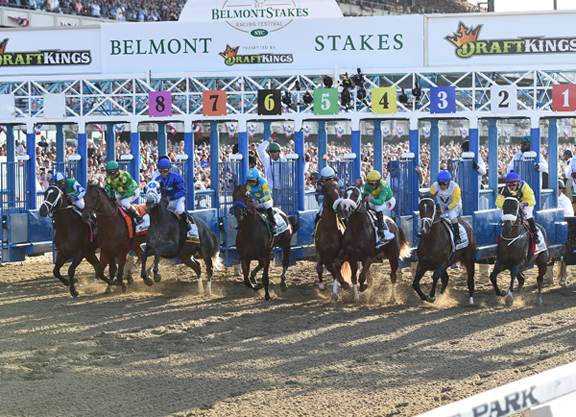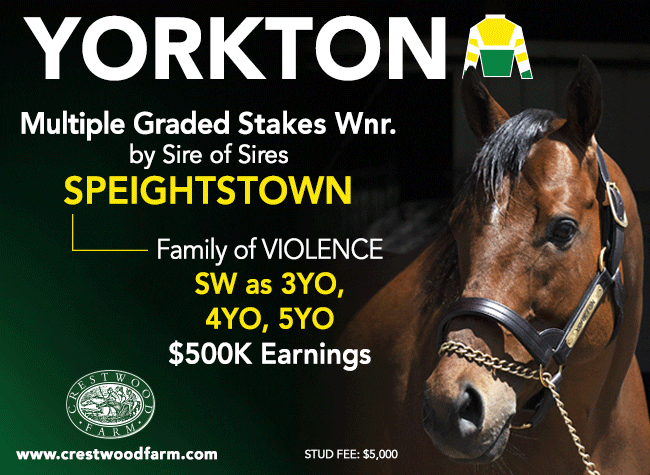By T. D. Thornton
A “discussion only” fact-finding agenda item about the impact of daily fantasy sports (DFS) gaming at Thursday's monthly California Horse Racing Board meeting yielded several new perspectives on the topic, but the proponents and opponents of this emerging, non-traditional form of game play remained largely split along familiar industry lines.
In general, the freshest ideas on how racing might be able to leverage fantasy gaming to ramp up pari-mutuel horse wagering came from speakers with experience in ancillary forms of bet-taking. Those who urged extreme caution or spoke out against DFS and tournament-style racing contests were more or less limited to those who run brick-and-mortar racetracks or represent horsemen.
The CHRB commissioners, for their part, largely took the middle ground. They advocated for the racing industry not to miss an in-vogue opportunity to bolster dwindling handles, while simultaneously taking care to make sure speakers didn't stray too far from the published agenda topic, which underscored “persuading [DFS] participants to become horse race players.”
And while pros and cons were bopped back and forth across the Los Alamitos Race Course conference room like a badminton shuttlecock, another aspect of the DFS/fantasy racing debate was made clear: Although there is no shortage of opinions on either side of the argument, very few who commented at the meeting could provide hard statistical evidence to back up their positions.
Except for one: John Ford, the founder and president of BAM Software, which operates the advance-deposit wagering company BetAmerica, came armed with six weeks of proprietary statistics to bolster his claim that since BetAmerica rolled out fantasy horse racing contest play in late October, his customers' pari-mutuel betting activity has risen accordingly.
“So far the data has been very encouraging,” Ford testified. “Despite the [downward] impact of November handle in the industry, our November handle was up 21.3%. Our December handle is up month-to-date 27% over December of 2014.”
Currently, the racing industry is searching for the proper metrics to gauge both the potential adverse effects of DFS on pari-mutuel betting and the possible upticks in handle that proponents of racing contests claim might be possible. But Ford said the unique, three-tiered way his ADW firm is set up might be able to provide such answers.
The reasoning is that unlike other racing ADWs, BetAmerica has had fantasy sports gaming since late 2013 and it just introduced racing contest play six weeks ago. Because it can track all of its customers' fantasy playing habits and correlate contest participation to actual account wagering bets, “what we're committed to is using that progression to increase pari-mutuel wagering,” Ford said.
“Again, it's preliminary. I'm the first one to say it. I've got six weeks of data, and I'd like to have a year of data,” Ford said. “But we'll [eventually] be able to see it [better], because obviously we have information on every player at every track that they've ever wagered on. We'll actually be able to see the impact of handicapping contests on pari-mutuel handle.”
But Josh Rubinstein, the chief operating officer for Del Mar Thoroughbred Club, indicated skepticism that this form of game play would increase revenues for racetracks.
“What Mr. Ford neglects to mention is [that from] the daily horse racing fantasy contests on BetAmerica, the industry receives zero revenue from those contests,” Rubinstein said. “So it may be helping BetAmerica, but it's not helping the industry.”
Ford countered that BetAmerica asks for and receives permission from track partners before featuring their races in contest play, and that the increases in handle through BetAmerica absolutely benefit the bottom lines of racetracks that put on the show.
“I'm the first one to acknowledge that if that doesn't work out that way [or if contests are shown to be] cannibalizing and decreasing pari-mutuel wagering, our partner tracks have the ability to say, 'OK, don't do contests on my track,'” Ford said. “Or, we'll provide a revenue share of fantasy with those tracks who don't want to participate in contests anymore.”
Commissioner Jesse Choper expressed an enthusiastic opinion about DFS and racing contest play in general, but he pointed out that it was not the role of the CHRB to take industry licensees by the hand to show them how to grow pari-mutuel handle.
“From my standpoint, it is the most promising avenue that I have seen for rejuvenating this industry,” Choper said. “Or, more modestly, for keeping it alive for longer than I think it will be unless we do something. That's my story. Let's do something. I don't know who's got to do it. I don't know how it's done. But let's do something to get these fantasy players to become horse players.”
Greg Avioli, representing the Thoroughbred Owners of California (TOC), said that while he appreciated Choper's sentiments about the opportunity and the technology, he wanted “to make everyone aware that there's another side” of the DFS debate.
“One of most valuable things racing has had over the last
15 years is Internet [wagering] exclusivity in the state of California,” Avioli said. “And what daily fantasy has quietly done is a major incursion into that exclusivity… If the legislation that is being considered right now will codify and regulate fantasy gaming in California, it's by definition going to remove the exclusivity that racing has. That's bad precedent in general.”
Avioli continued: “The difference is that in racing we can bet legally directly on the product. Daily fantasy is essentially a stopgap measure for people who cannot bet legally directly on sports…On behalf of the TOC right now, we view daily fantasy more as a threat than an opportunity in California.”
But when asked by the CHRB commissioners to quantify that threat, Avioli had to resort to prognostication.
“I'm not sure there is a way to accurately get that number,” Avioli said. “But I can tell you that in the big picture, the ability to be the second legal form of Internet betting in California is definitely taking something away from us long term.”
A representative from a fledgling company took the opportunity of the open-ended DFS agenda item to introduce a new product to the CHRB and the California racing community. Mike Knapp, an executive with US Fantasy (USF), said his firm is currently seeking approval in Nevada to become the first licensed and regulated DFS company in America.
Knapp said that pending approval by Nevada regulators, USF would offer DFS games of skill that run under a pari-mutuel platform. Like a host track, USF would charge a small percentage to casino operators (and eventually, to brick-and-mortar racetracks and simulcast facilities) who want to take the “signal” while allowing bet-taking entities to retain the bulk of revenues.
So instead of a “race,” Knapp explained, one daily football “contest” might consist of a field of quarterbacks. The next might include running backs. A third could feature running backs. A bettor could place either straight (win-place-show) bets based on a single position's performance in a Sunday slate of games. Or the player could go exotic and try to pick the top two or three finishers in the field (like an exacta or trifecta). Horizontal bets would also be featured, so you could field a “team” based on six different positional contests and play it like a Pick Six.
“Our fantasy game is based entirely on the pari-mutuel system itself, with the idea of attracting a younger crowd to pari-mutuels,” Knapp said. “We would actually anticipate producing a 'form' similar to what racing does with past performances and other collateral material that would help you make a selection.”
But when asked by the CHRB how USF could specifically help racing, Knapp too, was short on numbers-driven data.
“The demographics, I think that would be a tremendous boost,” Knapp said. “I managed the Del Mar off-track facility for about 10 years, and I think one of the biggest challenges we had then and still do today is to try and get younger audiences into that building.”
But, the commissioners persisted, how would such a product get DFS customers to actually place bets on horses?
“I think that's a natural progression actually. The biggest problem we have is to get them through the doors,” Knapp said.
Not a subscriber? Click here to sign up for the daily PDF or alerts.






